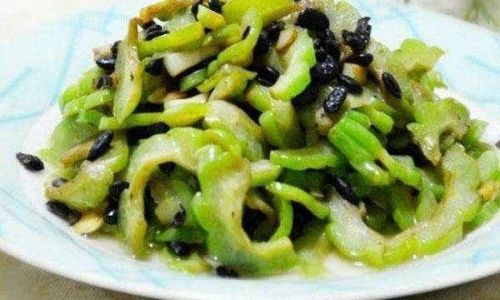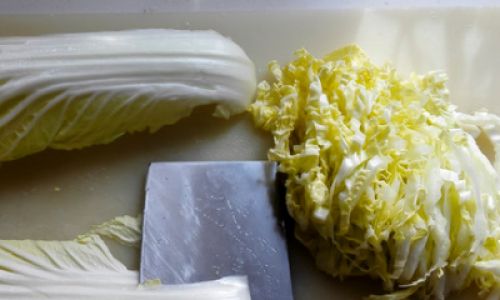Introduction
Fermented black beans, commonly known as douchi in Chinese cuisine, are a staple ingredient in many Asian dishes. Their unique flavor, a blend of savory, umami, and a slight hint of bitterness, adds depth and complexity to various recipes. However, for some, the bitterness can be overpowering, detracting from the overall taste experience. This article delves into the intricacies of how to effectively remove or reduce the bitter taste in fermented black beans, ensuring they enhance rather than dominate the flavors of your dishes.

Understanding the Source of Bitterness
Before discussing removal techniques, it’s crucial to understand the source of the bitterness in fermented black beans. The bitterness primarily arises during the fermentation process, a complex biochemical transformation that involves microorganisms breaking down proteins, carbohydrates, and fats in the beans. These microorganisms produce various compounds, including tannins, phenols, and alkaloids, which contribute to the bitter flavor profile.
Factors such as the type of bean used, fermentation duration, temperature, and humidity can all influence the intensity of the bitterness. For instance, longer fermentation periods often lead to higher concentrations of bitter compounds. Additionally, improper storage conditions post-fermentation can also enhance bitterness due to further chemical reactions.
Traditional and Modern Techniques for Bitterness Reduction
Removing or reducing the bitterness in fermented black beans requires a combination of traditional knowledge and modern culinary science. Below are several techniques that can be employed to achieve this goal.
Selection and Preparation of Beans
a. Bean Variety:
Choosing the right type of bean is the first step in minimizing bitterness. Some bean varieties naturally produce less bitter compounds during fermentation. For instance, black soybeans tend to be less bitter than other varieties like black turtle beans. Consult local suppliers or farmers to identify bean varieties known for their lower bitterness.
b. Pre-Soaking and Blanching:
Soaking the beans in water for several hours or overnight before fermentation can help leach out some of the soluble bitter compounds. Blanching the beans in boiling water for a couple of minutes after soaking further reduces bitterness by denaturing enzymes and soluble tannins that contribute to the bitter taste. Rinse the beans thoroughly after blanching to remove any residual bitterness.
Adjusting Fermentation Conditions

a. Temperature Control:
Temperature plays a crucial role in fermentation. Higher temperatures accelerate microbial activity, which can lead to increased production of bitter compounds. Maintaining a moderate temperature range (around 25-30°C) can help balance the fermentation process, reducing the formation of bitter compounds.
b. Humidity Management:
Humidity affects the rate of moisture loss during fermentation. Excessive dryness can concentrate bitter flavors. Ensuring the fermentation environment has adequate but not excessive humidity helps in distributing the bitter compounds more evenly and can sometimes mitigate their intensity.
c. Use of Starter Cultures:
Introducing specific starter cultures can direct the fermentation process towards producing less bitter compounds. These starter cultures, often lactic acid bacteria or yeast strains, compete with the natural microbiota, influencing the types of compounds produced. Consult with a fermentation expert or a microbiologist to select appropriate starter cultures for your beans.
Post-Fermentation Treatments
a. Rinsing and Soaking:
After fermentation, rinsing the beans thoroughly under running water can wash away surface-bound bitter compounds. Soaking the fermented beans in fresh water for a few hours can also help draw out additional bitterness. Change the soaking water periodically to ensure maximum removal.
b. Cooking Techniques:
Cooking fermented black beans can further reduce bitterness. Simmering them in a flavorful broth or sauce, such as soy sauce, garlic, or ginger, not only masks the bitterness but also enhances their overall flavor. Pressure cooking can be particularly effective as it rapidly heats the beans, breaking down bitter compounds more efficiently.
c. Toasting:
Lightly toasting the fermented beans in a dry pan or oven can caramelize sugars and develop a nutty aroma, which helps balance out the bitter taste. Be cautious not to over-toast, as this can create a burnt flavor.
Chemical and Enzymatic Treatments
a. Alkaline Treatment:
Soaking the fermented beans in a mild alkaline solution (such as baking soda or sodium carbonate) can neutralize some of the acidic compounds responsible for bitterness. Rinse thoroughly after soaking to remove any residual alkalinity.

b. Enzyme Applications:
Certain enzymes, like protease, can be used to break down proteins into amino acids, reducing the formation of bitter peptides. Commercial enzyme preparations specifically designed for food processing can be added during soaking or cooking stages. Always follow the manufacturer’s instructions to avoid altering the desired texture or flavor of the beans.
Flavor Masking and Blending
a. Seasoning and Aromatics:
Combining fermented black beans with strong-flavored ingredients like garlic, ginger, chili, and spices can effectively mask the bitterness. These ingredients not only enhance the dish’s complexity but also draw attention away from any residual bitter flavors.
b. Blending with Other Ingredients:
Mixing fermented black beans with other beans, such as adzuki beans or black-eyed peas, can dilute the bitterness. The resulting blend retains the unique flavor of douchi while being more palatable.
Conclusion
Removing or reducing the bitterness in fermented black beans requires a multifaceted approach, combining careful selection, precise fermentation management, and thoughtful post-treatment techniques. By understanding the sources of bitterness and employing a combination of traditional and modern methods, chefs and home cooks can harness the rich, savory flavors of fermented black beans without being overwhelmed by their bitter notes.
Remember, the key to successful bitterness reduction lies in balance. Each technique should be applied judiciously, as over-treatment can alter the beans’ texture, color, and overall flavor profile. Experimentation and a keen sense of taste are essential to achieving the perfect balance for your dishes.
As you embark on this culinary journey, keep in mind that the art of cooking is as much about understanding ingredients as it is about creativity and experimentation. By mastering the techniques outlined in this article, you can transform fermented black beans into a versatile, delicious ingredient that elevates your culinary creations to new heights. Happy cooking!





0 comments